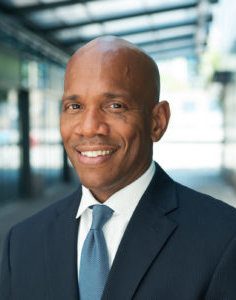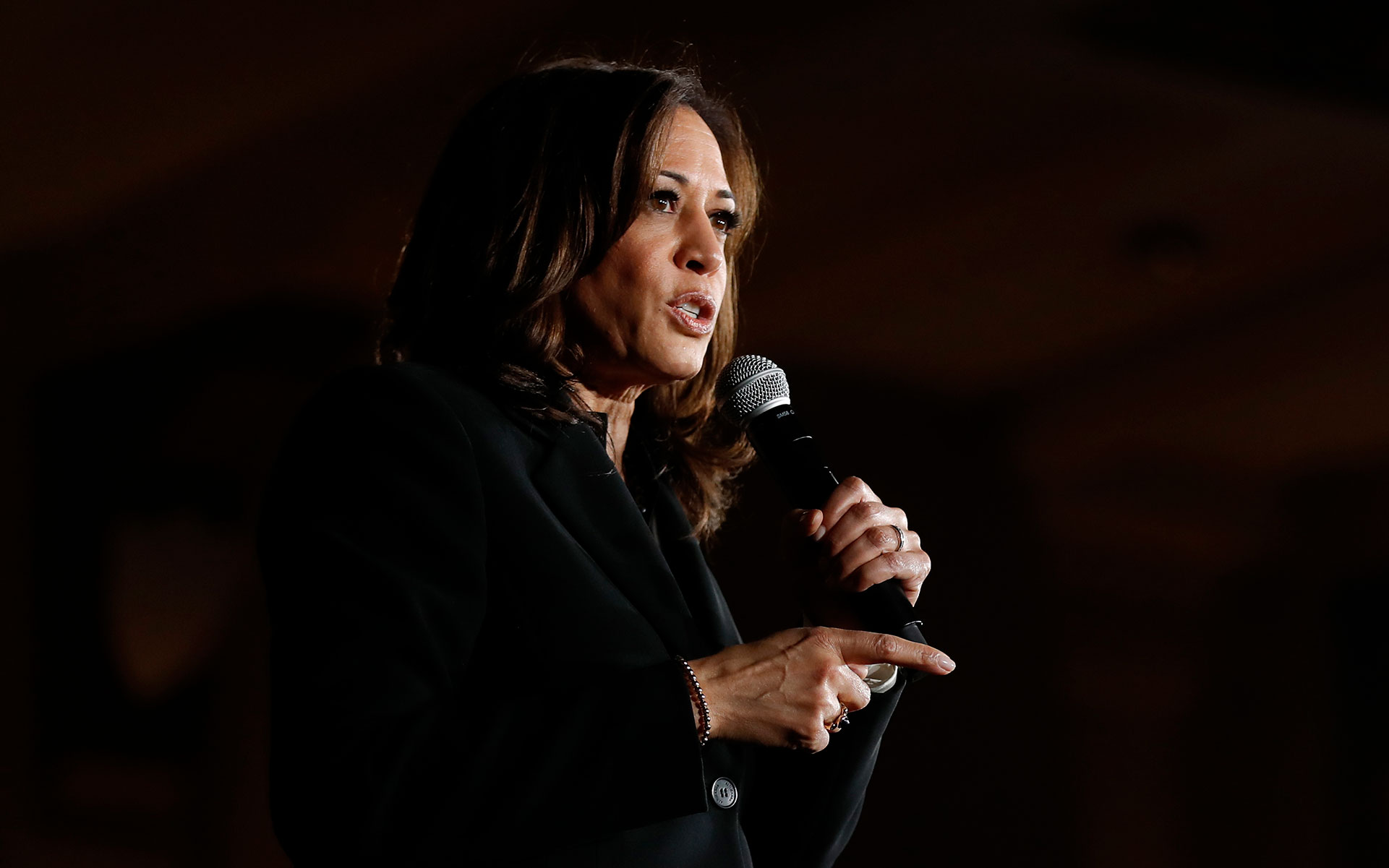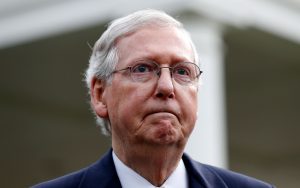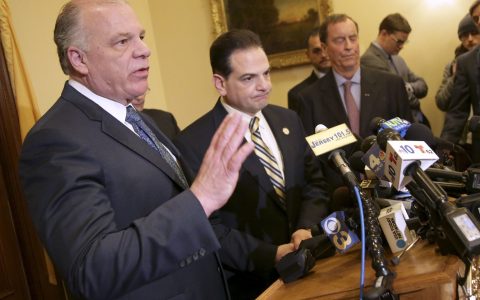Over the past seven months cannabis legalization advocates have achieved some remarkable victories in states across the nation. So far 2019 has been a hallmark year.
Those big wins include:
2019 so far: One big win (Illinois) and many smaller victories in New York, New Jersey, and on Capitol Hill.
There have been setbacks as well. New York, New Jersey, and Connecticut all failed to pass adult-use legalization measures. Back in January, those states looked to be on a fast track to passage. But along the way a number of state legislators got cold feet and backed away from the bills.
To learn more about the stories behind those victories, and to understand how they plan to pivot after defeats in the tri-state region, we spoke with some of America’s leading legalization advocates. While they share the goal of a post-prohibition world, they often approach the challenge in different ways.
Lesson One: Relationships Matter
In May, Illinois became the first state in the nation to legalize the possession and sale of cannabis through its legislature (as opposed to a voter-approved measure). Steven Hawkins, executive director of the Marijuana Policy Project (MPP), said the victory took years of hard work behind the scenes. MPP had been active in the state long before the vote.
 MPP’s Hawkins: In for the long haul.
MPP’s Hawkins: In for the long haul.
“We had a long-term relationship with key lawmakers in Illinois, going back six years, to when Illinois passed medical use,” Hawkins told Leafly. “A hallmark of our work is identifying states, being in it for the long haul, knowing this is an iterative process. It takes time and relationship building.”
It took a full team to make that kind of influential work a reality, Hawkins added. “We certainly had a team of lobbyists working the Democratic side, and another team working the Republican side of the aisle,” he said. The bill passed with bipartisan support in both chambers: 66-47, with two abstaining in the House, and 38-17 in the Senate. “It took a village to pull it off,” said Hawkins.
Next Step: The MORE Act
Michael Collins, director of national affairs at the Drug Policy Alliance (DPA), explained that a similar longstanding relationship with lawmakers helped result in the recent introduction of the progressive federal Marijuana Opportunity Reinvestment and Expungement (MORE) Act.
 DPA leaders worked with Sen. Kamala Harris, sponsor of the MORE Act, on the issue of legalization. (AP Photo/Charlie Neibergall)
DPA leaders worked with Sen. Kamala Harris, sponsor of the MORE Act, on the issue of legalization. (AP Photo/Charlie Neibergall)
DPA’s team had spent years building rapport with legislators including the bill’s sponsors, Rep. Jerrold Nadler (D-NY) and Sen. Kamala Harris (D-CA), but it wasn’t until Democrats re-took control of the US House of Representatives in the 2018 midterm elections that he felt like significant progress was possible. “What you saw with [the MORE Act] being introduced was the culmination” of that work, Collins told Leafly.
New York didn’t pass its own adult-use bill this year, but David Holland, the executive and legal director of Empire State NORML, pointed out that the organization adhered to a similar strategy. “We were the leading voice in New York State on New York policy issues,” he told Leafly.
Holland cited Doug Greene, the former legislative director of Empire State NORML, who died unexpectedly this spring, as a huge and influential force. “Man, was he on the money about this,” Holland said. “He knew all the groups, knew how to talk to all the other groups. He was a savant.”
New York Decrim Is Progress
Justin Strekal, NORML’s national political director, told Leafly that New Yorkers’ frustration with the state’s failure to pass an adult-use bill reflected unreasonable expectations. “It’s important to keep this in context,” he said. “It’s been less than seven years since a legalization initiative was first passed by voters.”
Strekal argued that New York’s decriminalization measure, which did pass, has been panned as insufficient by many activists and media outlets, including Leafly. But in fact, Strekal said, that measure marked significant progress. “If it had passed in a state like Pennsylvania, people would be doing backflips. If it was Texas, we’d be in awe,” Strekal said. “[Moving forward], expungements won’t be a political chip to be cast at the negotiation table when legalization comes up again” in New York.
Grappling with Prohibitionists
Many legalization pushes this year have been countered by anti-legalization groups, of which Smart Approaches to Marijuana (SAM) is the most prominent and well-funded. Nor did SAM limit its efforts to adult-use legislation. Debbie Churgai, the interim director at Americans for Safe Access (ASA), said SAM also impeded efforts to improve patients’ access to medical marijuana.
“So many [anti-legalization] organizations don’t have accurate information. They say things like ‘cannabis causes psychosis or lung cancer.’ These are false statements,” Churgai told Leafly. “They’re using these statements to try to scare people. They’re using old excuses. I think our biggest problem right now is false information that’s being spread.”
The latest from SAM president @KevinSabet in @RealClearNews: “Proposed Marijuana-Banking Regs Are Anything But ‘Safe’”https://t.co/Y895PudsYq
— SAM (@learnaboutsam) August 2, 2019
Churgai pointed out the Catch-22 set up by groups like SAM: Legalization opponents say there isn’t enough research on cannabis, but they aren’t in favor of actually doing the research. “If you don’t believe in medical marijuana and don’t even want to read about it, I don’t think that’s fair,” she said. “You need to look into what the government has said about it. We do still need the research, but saying you don’t want to consider it is not going to help.”
According to NORML’s David Holland, anti-legalization groups like SAM were influential in derailing efforts in New York. “We attend meetings where they’re at, try to balance the playing field,” he said. “We try to debunk the myths of prohibition and false equivalencies that are perpetuated by SAM at every opportunity we can.”
Media Manipulation
Holland expressed particular frustration over the way anti-legalization groups have figured out how to manipulate the media. “It’s not that [Kevin Sabet, SAM’s national president] is unwilling to debate people, but he gives no notice and waits until the eleventh hour to unleash an onslaught of appearances and op-eds that are timed so that nobody can respond.”
In the weeks leading up to the state’s deadline to pass an adult-use bill in June, SAM put up billboards around New York state with misleading statistics. One, for instance, stated that overdose deaths have risen by 49% in Colorado since legalization passed. That’s technically true, but, as Leafly reported earlier this year, it’s also less than half the average national increase in opioid-related deaths. “It’s even worse than the gateway theory,” Holland said in regards to the claims made by SAM. “There’s no causal connection.”
“I’m concerned when I look at groups like SAM, they only have to spend one-third [of what we do] to wreak havoc,” added MPP Executive Director Steven Hawkins. “In New Jersey they cleaved off just enough support to stall legalization efforts. That should be of concern to all of us.”
Funding Still Matters
Matt Schweich, deputy director at the Marijuana Policy Project, however, pointed out that anti-legalization forces outspent advocates in Arizona during the unsuccessful 2016 campaign to legalize, particularly on TV ads. “Support has been growing steadily” since then, he pointed out. “If the [legalization campaign] is well funded, it has a good chance of passing [in 2020].”
Interestingly, Debbie Churagi of ASA said that she’s also gotten flack from adult-use proponents, because, she suspects, they associate ASA with overregulation.
“Right now, pro-legalization people can be really harsh against the medical marijuana community. They don’t like the government telling them how to grow it and buy it,” Churagi said. “People that used to support us are against us because they think [government regulation] has gone too far in terms of what they can buy and where they can buy it. It’s sad. We just want to make sure people are getting safe, clean products.”
Fighting Complacency
As the legal status of cannabis changes in states across the country, organizations are trying different tactics and messaging to keep their supporters engaged. Virtually everyone I interviewed for this story was particularly concerned about overconfidence within the ranks of supporters. Apathy and the assumption of victory, many agreed, is a growing risk.
Steven Hawkins, MPP executive director
“The question of whether [federal legalization] is inevitable concerns me. I caution people on this notion of inevitability,” said MPP’s Hawkins. “Public opinion is with us now, but it can be tricky. We have the political wind to our backs right now. We could see the end of prohibition within three to four years.” But political winds can shift within three to four days, let alone three to four years.
“My major thrust now is to get folks angry or concerned: angry we lost states we should have won, or concerned that things might not be on the horizon [as much] as we think,” Hawkins added. “The fight isn’t over by a long shot. My job is to spread that message. Movements can flow in two directions, forward and backward. We want to keep it going forward.”
Matt Simon, the Marijuana Policy Project’s New England political director, said a similar element of complacency contributed to Connecticut’s failure to pass adult-use legalization this year. “There was a new governor and the Democratic party had taken both chambers” of the state legislature, Simon said. “A lot of people thought it was going to be a done deal, but the reality was a lot more complex. There hadn’t been a lot of groundwork laid on the issue.”
We Won. Now What?
ASA’s Debbie Churgai spoke to a similar risk of apathy on behalf of members and donors. She mentioned a recent exchange with an ASA member in California. After legal adult-use stores opened in 2018, “he sent us an email and said, ‘We got it done here in California, I don’t need you anymore, drop my membership,’” she recalled. “What surprises me the most is when people only care about what’s happening in their own state. We’re a national organization. But what we’ve noticed is that about a year after a law has been passed, suddenly these advocates come out again, and say they don’t have what they need. They start to advocate again.”
Americans for Safe Access: 2019 Conference Highlights
More Industry Lobbying, but…
For NORML’s Justin Strekal, a shift away from philanthropic support, based on an assumption among donors that legalization is inevitable, has gone hand in hand with a rise in lobbying by members of the emerging cannabis industry.
Cannabis companies are lobbying in Congress. But ‘there are great actors and not-so-great actors,’ says NORML Political Director Justin Strekal
“There are great actors and not-so-great actors,” Strekal said. “There are companies that advocate for both their bottom line and consumers.” Too often, though, Strekal said he sees cannabis companies “promoting their own solely corporate interests as opposed to the welfare of their consumers.”
Widney Brown, managing director of policy at the Drug Policy Alliance, argued that the most effective messaging for drug policy (which for the DPA includes harm reduction and education, in addition to cannabis advocacy) is to focus on “prioritizing saving lives.” She emphasized the value of engaging with public health officials, instead of politicians, for information and solutions, especially in regards to the opioid crisis. “It’s about bringing that urgency back to people to understand that in their communities, politicians don’t have answers,” she said.
2020 Battlegrounds Come Into Focus
Summer has offered advocacy groups a chance to recover from the end of the 2019 state legislative sessions, and assess where they want to focus their resources in the presidential election year of 2020. In past election cycles presidential ballots have often been most favorable for state legalization measures, as younger voters tend to turn out in larger numbers.
DPA’s Widney Brown said the southeast, which has some of the highest drug arrest and conviction rates in the country, is one of the organization’s highest priorities. “It’s going to be a much harder slog, but when you look at the sheer numbers of where people are having their lives turned upside down, it’s in the South and [particularly] among communities of color and immigrants,” she said.
So far there’s only one Southern ballot initiative on the horizon next year, a medical marijuana measure in Mississippi. DPA, accordingly, has largely focused its efforts on persuading leaders in major urban areas to make drug arrests a lower priority. DPA leaders hope the tactic will spread throughout the region. Once you make progress in urban areas, “you can then assuage the fears of people in other parts of the states,” Brown said. “We hope that if you can do that, it creates a foundation for legalization.”
Corn Huskers in Play?
Over at the Marijuana Policy Project, Deputy Director Matt Schweich has already honed in on Nebraska, where a medical marijuana measure will likely be on next year’s ballot. MPP sees that campaign as an opportunity with big potential.
Matt Schweich , Marijuana Policy Project
The organization has a team on the ground overseeing a volunteer signature drive. They’ll need to round up a quantity of signatures equal to 10% of all registered voters (roughly 120,000 signatures as of this writing) by July 2nd, 2020, to ensure that the measure gets on the ballot.
“Polling shows over 70% of voters will support the initiative,” Schweich told Leafly. “I’m cautiously optimistic we can win in Nebraska next year.”
2020 Adult-Use Votes in Montana and Arizona?
Although MPP is hesitant to invest resources in other states that haven’t yet finalized their upcoming initiatives, advocates are cautiously optimistic about their chances in Montana, which is hoping to get an adult-use initiative on next year’s ballot, and Arizona, which failed to pass adult-use cannabis legislation in 2016. According to polls, marijuana has gained more favorability among Arizona residents there since 2016.
Arizona’s 2020 adult-use initiative may include ‘a package of consumer rights’ including justice reform and homegrow, says Arizona NORML’s Mikel Weisser.
Mikel Weisser, the executive director of Arizona NORML, is optimistic that legislation will pass next year, thanks in part to a big switch-up in leadership and a move to solicit input from a wide swath of the constituency “to be part of the drafting process…instead of being left behind.”
Arizona’s proposed initiative will be made public soon. In the meantime, Weisser pointed to “a package of consumer rights” that he’s excited about, including home grow, criminal justice reform and more. He hopes that they will be able to start gathering signatures by Labor Day, which is about four weeks away. Roughly 230,000 verified signatures will be needed.
Taking Advocacy Federal
Beyond state-by-state action, advocacy groups have worked this year to move the federal conversation forward on several fronts.
In May, a group of plaintiffs including the Cannabis Cultural Association, represented pro bono by Michael Hiller and Joseph Bondy, made a huge step towards descheduling cannabis. They persuaded a federal court to proceed with a lawsuit challenging the constitutionality of the Controlled Substances Act. Because of their efforts, the United States Second Circuit Court of Appeals will now move with “deliberate speed” to consider their case, Washington v. Barr. A trial date has not been set.
“The trial has shifted in our favor,” said Jake Plowden, co-founder and deputy director of the Cannabis Cultural Association. Plowden explained that after Hiller approached the organization about becoming involved in the case, which was filed in 2017, half of their board quit. The CCA proceeded nevertheless. “We would have been foolish to not fulfill this duty,” Plowden said. “We had to stand up and show people how much work still needs to be done beyond state-by-state legalization.”
More Focus on Justice
Furthermore, this July, in conjunction with a US House subcommittee hearing on the merits of legalizing cannabis, a group of ten organizations, including NORML, the Drug Policy Alliance, ACLU, Human Rights Watch and others announced the formation of the Marijuana Justice Coalition, which will work together as a bloc to champion progressive cannabis-related policy such as descheduling, criminal justice reform and a demand that tax revenues benefit entrepreneurs and communities impacted by the war on drugs.
 Sen. Mitch McConnell: blocking progress. (Alex Brandon/AP)
Sen. Mitch McConnell: blocking progress. (Alex Brandon/AP)
“We drew a line” against ineffective policies, said Michael Collins, the national affairs director at the Drug Policy Alliance. Collins helped spearhead the coalition along with Queen Adesuyi, the organization’s policy coordinator.
Some activists, however, argue that it still behooves the movement to focus on state-level or municipal strategy. “99% of cannabis arrests are made by state police,” pointed out MPP’s Matt Simon. “As much as I want federal law to change… the reality is that changing state laws is the way that we’ve been able to most dramatically impact this policy in a way that changes peoples’ lives.”
NORML’s Strekal agreed that reform efforts have the best chance of passing at the state level. He cited one powerful senator who continues to block progress at the federal level: Senate Majority Leader Mitch McConnell. “[He’s] the reason why nothing comprehensive is gonna happen,” Strekal said. “He has the final say on what legislation can receive consideration.” Based on his record of staunch opposition to cannabis reform, said Strekal, it ain’t looking pretty.
DPA’s Widney Brown shared a similar perspective, particularly within the context of the opioid epidemic. “For a long time we thought doing work at the state level would drive federal reform. Although the MORE Act is really great, I’m not sure how fast we’re going to get to comprehensive drug reform policies at the federal level,” she said. “If you are the mayor of a small town, or the police chief, or on the city council and your neighbor’s kids are dying, or your kids, you can’t say that it’s not [your] problem.”






